Magistrates' warning as court delays create 'postcode lottery'
- Published
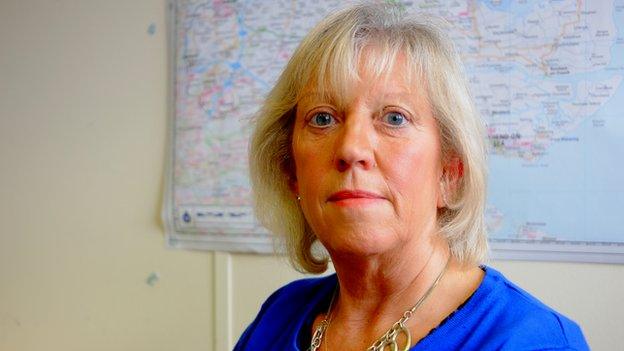
Heather Robbie of Victim Support says delays in court cases increase the stress and strain on victims and witnesses
Magistrates have warned the criminal justice system is "on the cusp" of breaking down amid growing delays, court closures and funding cuts.
Cases heard in England's magistrates' courts currently take 149 days on average to complete - a week longer than four years ago.
In some parts of the country, magistrates take three times as long to deal with cases as elsewhere.
The Ministry of Justice said new technology would speed up courts.
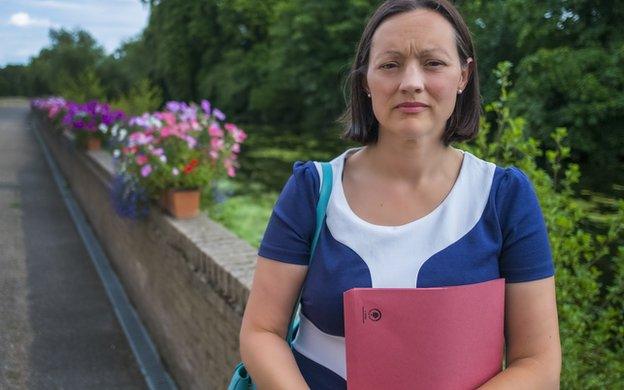
Lawyer Caroline Woodley said delays in getting paperwork from the Crown Prosecution Service were an almost daily occurrence
Magistrates in England and Wales, whose courts process about 90% of all criminal cases, dealt with 1,360,858 defendants last year, 5.4% fewer than the 1,444,505 in 2011. Crown courts saw 139,000 cases in 2014.
In July, the government announced 57 magistrates courts and two crown courts would close in the wake of a 30% budget cut since 2010, which has seen HM Courts and Tribunals Service funding cut from £1.5bn to £1bn.

Coverage of the courts
BBC News Online reporters covered the working of courts in three parts of England on Monday. They encountered:
The only trial heard in Court One at Ipswich Magistrates' Court during the morning session took 1hr 50mins to be heard - and it was dismissed at 11:50 BST.
The case against a 46-year-old man accused of criminal damage was thrown out by magistrates in Ipswich after two witnesses failed to appear at his trial
Case at Northampton where a man was accused of stealing coffee was adjourned because he refused to leave his cell
Videolink was used in case of defendant at Stevenage Magistrates' Court. However, because he was on video he had to say in front of open court what his salary was rather than filling in private means forms
Paperwork for some cases had not arrived at Stevenage this morning shortly before proceedings were due to start
To look back at the Local Live court streams visit Beds, Herts & Bucks, Northamptonshire or Suffolk.

Ministry of Justice figures obtained by the BBC show what victims call a "postcode lottery" in the justice system.
In the Sussex (Western) region, magistrates cases take an average of 124 days to be dealt with. In Furness and District, in Cumbria, the figure is just 37 days.
Eleven times in court... and counting
Tina Beloveth Powerful, 47, from Milton Keynes, was found guilty of fraud after eight separate court hearings.
She had offered courses and degrees that her Everest School of Transformational Management did not have the correct accreditation for - and advertised facilities that did not exist, including a library.
But since she was found guilty, Powerful has failed to turn up for sentencing on three occasions. An arrest warrant has been issued.
Corby has some of the slowest courts in England, taking 108 days on average to deal with cases. This, the court's bench chairman Terry Knights warns, could be causing some cases to collapse, letting the guilty walk free.
"I fear we are right on the cusp of things suddenly starting to unravel. The whole court system is Dickensian," he said.
"It isn't unusual to get a court appearance which is someone's sixth court appearance for one case.
"At the end of the day some of the witnesses and some of the victims say I can't be bothered with this - and they don't turn up and therefore the case falls apart. Justice isn't done."
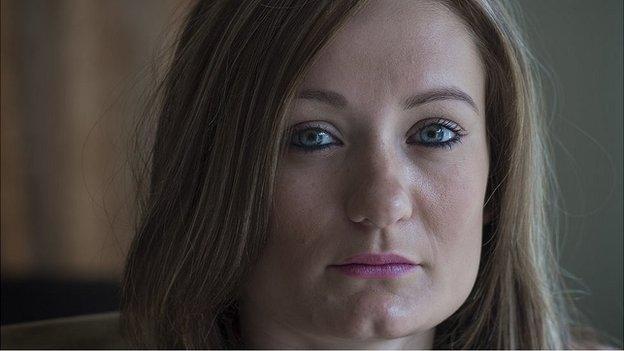
Danielle Moss said her former partner's case took more than two years to get to trial
A senior Essex magistrate, who asked not to be identified, said there was a "perfect storm" for delays in the county, which has a growing population, court closures, crime hotspots including a major international port and airport and the introduction of new police software which has caused issues.
"We are seeing trials taking place something like a year after events that are in court," he said.
"During that year people's memories have faded, some people who were prepared to give evidence don't wish to do so any longer, so both the quality and quantity of evidence, which is absolutely critical, starts to slip away.
"The other thing is the victims of the alleged offence don't get the closure. They have this hanging over them for very much longer than they should do."
The step-father of a sexual assault victim in Suffolk, who cannot be named for legal reasons, said: "The court system is a postcode lottery, the time cases take really depends on where you live.
"The whole process was about twice as long as it needed to be and the impact on us as a family was awful and we will never forget how terrible that was."
Danielle Moss, whose ex-partner was jailed for three years for causing injuries to their son Ollie, said the case took two years and three months to get to trial.
"It is an awful long time, you feel like you're living a sentence," said Ms Moss, who believes her former partner is innocent.
Essex lawyer Caroline Woodley at law firm OBWPerera, told of "a huge backlog of trials" in her area.
"We experience a lot of delays. It is bad and it is probably getting worse. Delays are happening on a daily basis.
"In court, the majority of the delays involve us not getting the paperwork on time from the prosecution whether at the initial court hearing or after that, prisoners not being delivered at the right time or to the right court, interpreters not turning up on time or to the right court and there are delays in getting cases listed."
'Tough for victims'
Heather Robbie from Victim Support said: "Cases are taking longer to come to court, it sometimes takes more than a year between the original crime and it coming to court.
"It is tough for victims. In our experience some people are really quite frustrated, they get stressed and anxious, it can affect their physical and mental health and it can affect the quality of their evidence."
Justice Minister Shailesh Vara said: "The magistrates are stating the obvious. There are delays. We know that.
"We want to make sure that delays are minimised if not eliminated completely, because it is important that justice takes place efficiently and properly and to make a system that is less stressful for all concerned.
He said the delays in the worst areas were not "acceptable", adding he wanted to see video conferencing and use of mobile telephones in people's sitting rooms to deal with certain cases.
BBC Inside Out spent two days with Ms Woodley for a personal view of the issues raised by court delays. It will be broadcast on Monday at 19:30 GMT on BBC One East and afterwards on iPlayer.
- Published4 September 2015
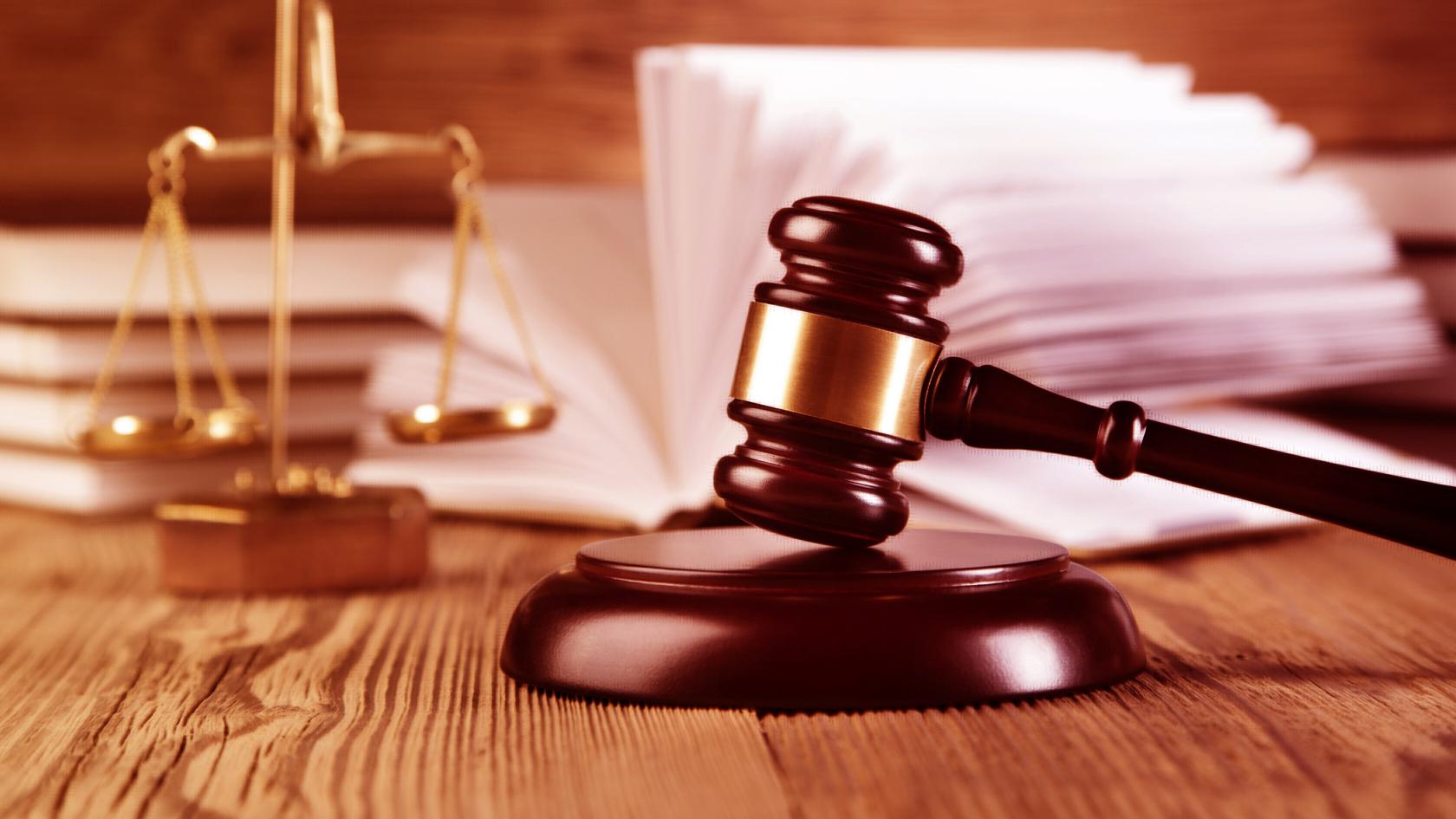
- Published3 September 2015
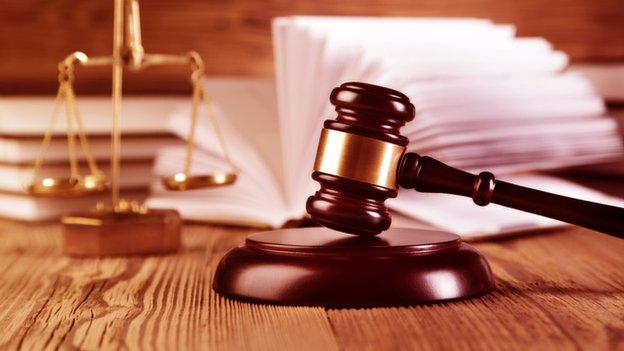
- Published4 September 2015
